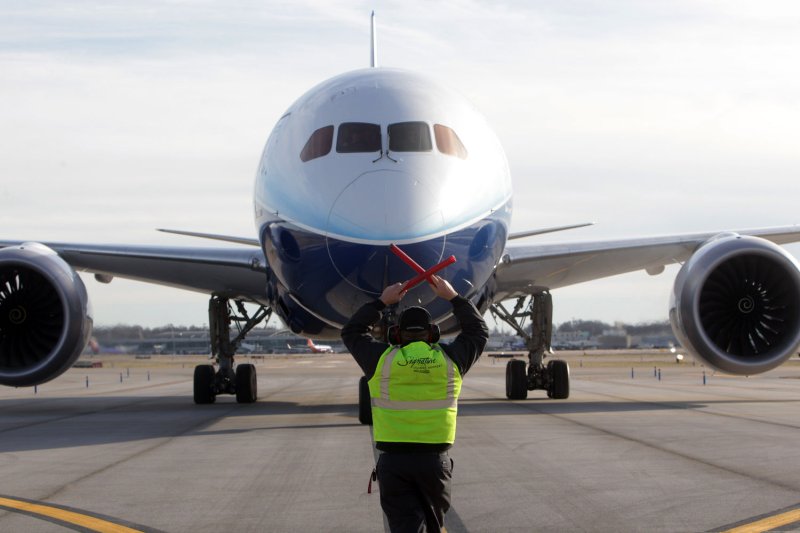A Boeing 787 Dreamliner is guided to a stop at Lambert -St. Louis International Airport during a media tour in St. Louis on Jan. 30, 2012. UPI/Bill Greenblatt |
License Photo
KYOTO, Japan, Jan. 21 (UPI) -- Japanese officials said they would do a thorough investigation of the lithium-ion batteries used in Boeing's grounded 787 Dreamliners.
The new jets have been grounded in several countries after a series of electrical fires. In two of the latest incidents, a fire broke out in a Japan Airlines 787 Dreamliner at Logan Airport in Boston, after passengers had deplaned. Another incident caused an All Nippon Airways Dreamliner to make an emergency landing.
U.S. officials during the weekend said the overcharging the lithium batteries was not the problem that caused the fire in Boston as the the 32-volt charging capacity had not been exceeded.
But officials from the U.S. Federal Aviation Administration and Japanese air transportation officials Monday visited the headquarters of GS Yuasa Corp. in Kyoto, Japan, The Wall Street Journal reported.
"We will inspect whether appropriate operations have been conducted -- from design to manufacturing," said Shigeru Takano, a transportation ministry official who is director of the airline safety division.
Finding a problem with the batteries would be a relatively easy exit from the controversy for Boeing, as the jet has a complicated electrical system that has already been vigorously tested. Finding a flaw in the electrical system could take a lot longer than simply finding the batteries were flawed.
The battery company, however, has a long track record that has little experience with aviation, but a long history elsewhere.
The company is the product of a 2004 merger between Japan Storage Batteries, which began making batteries in 1895, and Yuasa Corp.
That merger created the third largest battery company in the world. It commands 8 percent of the car battery market.
In 2012, its lithium-battery operations reached $3.16 billion in sales. It makes batteries for a variety of different uses, including satellites, and has a "sterling safety record," the Journal said.










